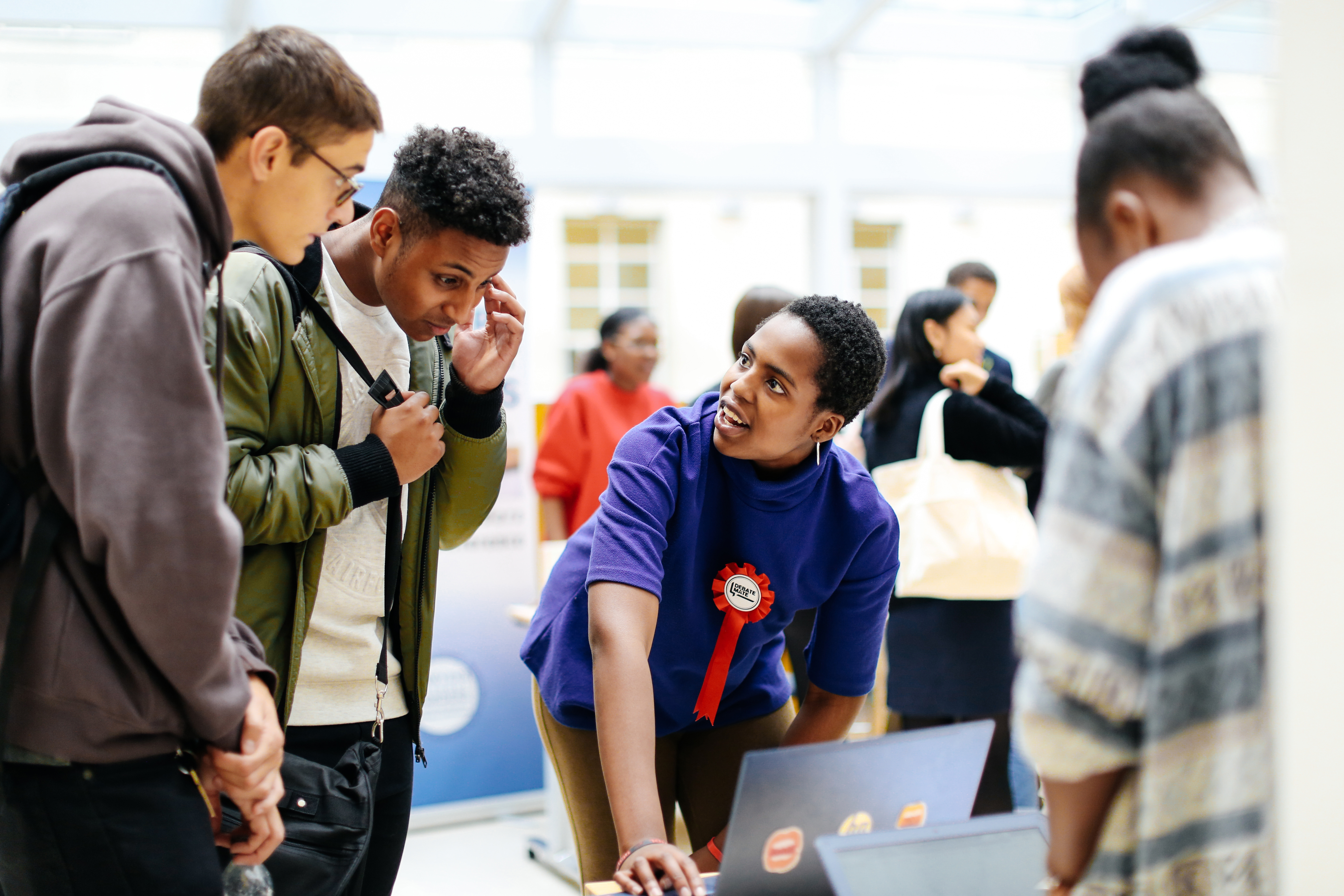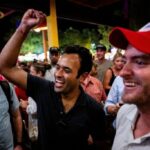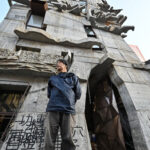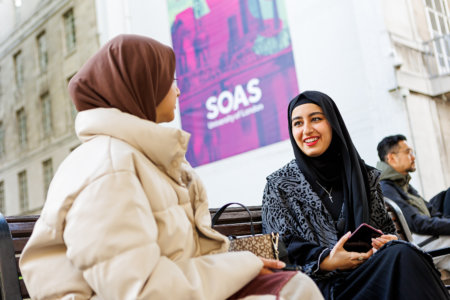Earlier this decade, Alysha Bagasra was on a mission to reshape old ideas in international institutions. She found the development of global environmental and trade policies falling short and coming under pressure. To the New Zealander, the only way to achieve her goal was through a master’s degree that could boost her career in international policy and development. She found her answer at SOAS University of London.
“I chose SOAS because of its ability to provide a pluralistic economics education, which was impossible to find in my country and very difficult to find elsewhere,” says Alysha. “I was struck by the high level of integration of heterodox and mainstream approaches in the programme, as well as the academic rigour and nuance afforded to important issues like decolonisation and climate justice.”
This pluralist approach by the Department of Economics covers multiple ways to understand and analyse real-world trends. The department explores standard and non-traditional theories and methodologies as well as the challenges the field faces today. By probing both approaches, the department acknowledges that each has its unique strengths, weaknesses, and outcomes.
“Drawing on our rich tradition in political economy, development economics, and heterodox economics, we have developed analytical tools and empirical methods that we can use to achieve our vision to reshape economics and to bring about fundamental change in economic policymaking and practices around the world,” says Professor Ha-Joon Chang
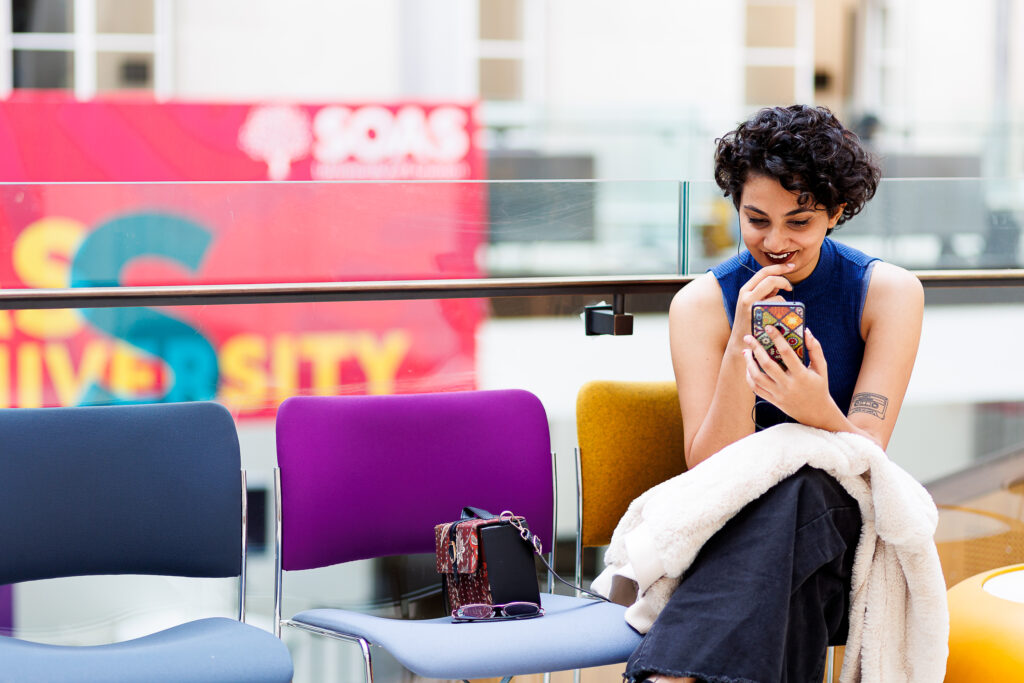
The SOAS University of London takes a pluralist approach to economics. Source: SOAS University of London
It’s a big goal, but one the department traverses with purpose. Alongside SOAS’s leading expertise in decolonisation, it leverages real-world economics where knowledge is not something you memorise but something that requires a comprehensive understanding of history, geopolitics, national political economy, and social factors. Such a broad range is crucial and mirrors the multiple challenges that the world is facing, such as the climate emergency, the health crisis, and global inequalities.
Whether you pursue a bachelor’s, master’s, or doctoral degree here, all programmes at the Department of Economics offer a global perspective. From Development Economics to Economic Policy, these programmes put a prominent feature on the Global South, especially Africa, Asia and the Middle East, as well as the Department’s growing expertise on Europe and Latin America.
But what gears up students like Alysha to realise their ambitions are the practical experiences they gain here. Students benefit from tailored and hands-on learning that develops their skills in analysis, writing and even analytics. “There is also a change in the empirical methodologies in the field of economics with innovations in data analytics that go beyond the traditional scope of econometrics,” says Professor Chang.
“The programmes in SOAS Economics respond by placing greater emphasis on embedding practical skills and professional experiences in modules such as Econometrics with R coding, Advanced Econometrics with R coding, Evaluation Methods for Economic Policy, as well as optional modules such as Data Analytics.”
Students also have opportunities to work closely with experts in their field, getting a glimpse into important skills they need for their professional futures. They can, for instance, engage with the Centre for Sustainable Finance and the Centre for Sustainable Structural Transformation that act as hubs for research and knowledge exchange on the transformations and policies that are necessary for a just transition to a green economy. “The strong empirical grounding of the course, which complements the theoretical frameworks we learn, compel students to understand how economic policies play out in the real world,” Alysha says. “For students who have worked in relevant fields, this allows us to contribute valuable perspectives and critically assess applications of theories and policies in different contexts.”
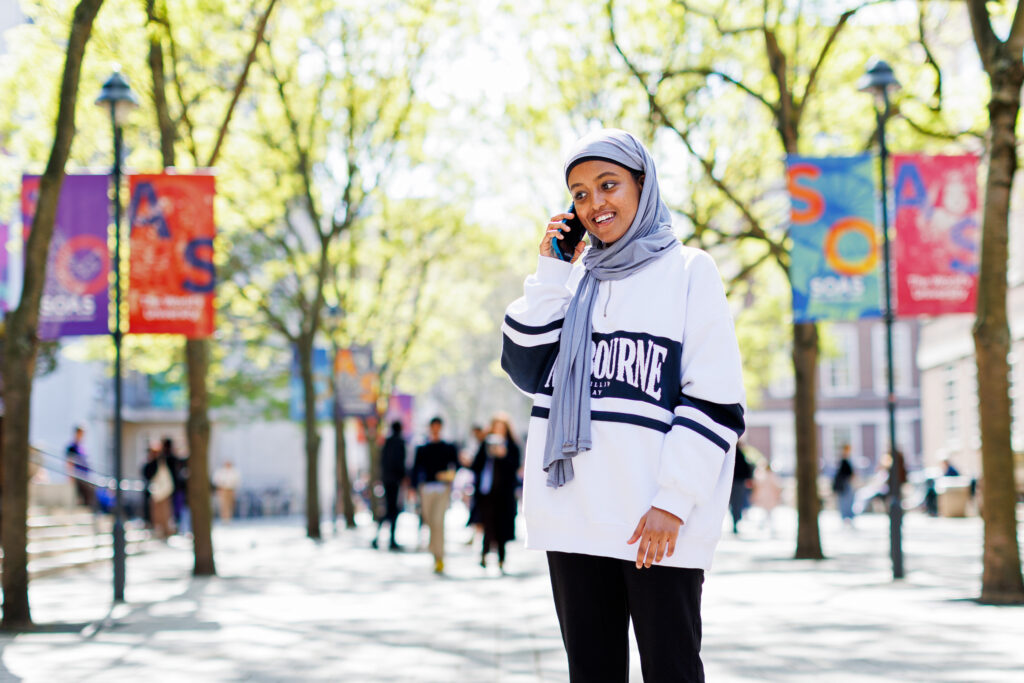
SOAS University of London students hone their practical skills and professional experiences through the department’s vast programmes. Source: SOAS University of London
MSc Development Economics and MSc Economic Policy students can take part in a full-time, 10 to 12 months of work placement at any organisation they choose. Here, students can apply what they have learned in classrooms to a professional setting, gaining real-world skills and practical work experience.
All programmes are informed by research. Researchers and academic staff here work together to explore a wide range of consequential topics, such as socio-economic inequalities, the environmental crisis, structural transformation, financialisation, social reproduction, the political economy of food, informality, labour, the political economy of institutions, corruption, as well as macroeconomic, social and industrial policies. Their findings have shaped international debates, policies and political actions in various areas, from structural transformation and economic development in an age of ecological crises to poverty and inequality. These research expertise form the basis for the ‘lines of specialisation’ in MSc Development Economics and MSc Economics.
Alysha believes all she’s learned and gained here has helped open doors to the high-impact career she aimed for. Today, she’s a Senior Policy Officer at the New Zealand Ministry of Foreign Affairs and Trade and confident of succeeding in the many professional paths that lie ahead of her.
“Armed with a master’s in economics from SOAS, I will now have the academic credentials to progress my career in policy making and diplomacy, including pursuing specialist roles in public administration, like central banking and international economic organisations like multilateral development banks, further buoyed by SOAS’s strong international reputation.”
Follow SOAS Economics Department on Facebook, LinkedIn, and X. Also follow SOAS University of London on Facebook, Instagram, LinkedIn, SoundCloud, Weibo, X, and YouTube.

